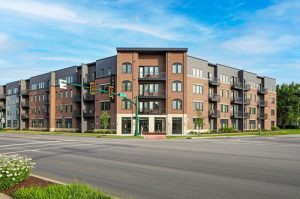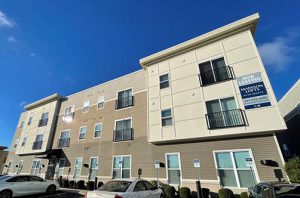Empowering Property Owners and Residents for Improved Broadband Connectivity
The Federal Communications Commission (FCC) is poised to address the issue of competitive broadband access in multi-tenant buildings. The FCC aims to foster a more open and competitive environment in the broadband industry by reevaluating revenue-sharing agreements, exclusive wiring arrangements, and exclusive marketing agreements. This presents a significant opportunity to enhance internet and Wi-Fi access for residents of multi-tenant buildings, allowing property owners and management companies to choose the best internet options for their tenants. This article will delve into the current state of multi-tenant broadband access, the potential impact of FCC’s actions, and the benefits it holds for property owners, internet providers, and residents.
The Status Quo of Multi-Tenant Broadband Access:
For years, cable providers have held a virtual monopoly over broadband access in multi-tenant buildings, stifling competition and limiting choices for property owners and residents. Many property owners were unaware of the rights they had unknowingly relinquished, leaving them with limited control over broadband services in their buildings. Property owners and their tenants must be free to seek out the best internet options, especially in an era where technology is evolving rapidly.
An Opportunity for Increased Competition in MDU Broadband:
The FCC’s reconsideration of exclusive wiring, marketing, and sale-and-leaseback agreements presents a chance to level the playing field. These agreements, which have facilitated the dominance of cable companies, may be deemed illegal, paving the way for more competition. The removal of such restrictions would benefit not only internet providers but also property owners and their residents. Specialized Internet Service Providers (ISPs) like ORI can offer superior service, support, and tailored solutions specifically designed for multi-tenant buildings across the United States.
Benefits of Improved Broadband Competitiveness:
Enhancing the competitiveness of broadband access in multi-tenant properties will yield several advantages. Property owners and residents can expect lower prices, faster speeds, and improved service and support. Additionally, this shift can potentially increase the value of rental properties. With increased competition, property owners can hold their internet providers accountable for their service quality. Unlike the current landscape, where property owners have little control over their residents’ internet experience, this change empowers them to ensure that their tenants have access to a vital utility that meets their needs.
Taking Action: Support for FCC Rule Change:
As internet access has become the fourth utility, property owners and internet providers must voice their support for the FCC’s proposed rule change. By submitting comments to the FCC to eliminate exclusive arrangements, stakeholders can actively contribute to creating a more competitive and consumer-centric broadband market. The FCC’s release on this matter provides valuable insights and guidelines for participating in this process.
The FCC’s potential shift towards improving competitive broadband access in multi-tenant buildings marks a significant step in empowering property owners and residents. This change will lead to lower costs, faster speeds, and improved service and support by dismantling exclusive agreements and fostering a more competitive landscape. Property owners and internet providers need to seize this opportunity and actively engage with the FCC to advocate for the elimination of restrictive agreements. Together, we can unlock the full potential of broadband connectivity in multi-tenant buildings and drive progress toward a more inclusive and digitally connected future.






